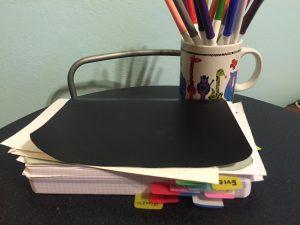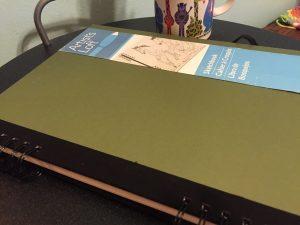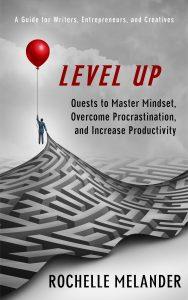The Writer’s Guide to Developing Ideas
July 23, 2019

The Writer’s Guide to Developing Ideas
Everybody walks past a thousand story ideas every day. The good writers are the ones who see five or six of them. Most people don’t see any.
– Orson Scott Card
My clients often ask me how to find, store, and collect new ideas. Whether you are writing a blog to support your business, drafting a novel, or creating a how-to book—you need to develop a practice that will help you discover and use new ideas.
The following tools will help you discover, generate, record, play with, and use your ideas.
Develop an Idea Recording System
Before collecting ideas, it can help to have a system for recording and categorizing them. I recommend that everyone have:
A tool for recording ideas on the road
When you’re in the car or doing errands, ideas buzz around your head like flies on food. Use a tiny notebook, index card, or a note-taking app on your phone to record the ideas. If you use an app like Evernote to collect your research, that can be a good place to record your new ideas.
An idea journal or file

My idea notebook.
Use a big notebook, a computer document, or a combination of both to record ideas. Divide your notebook or document into different sections so that you can organize ideas by project or category. A networking consultant who has a blog and is writing a book might have an idea file with categories like “blog ideas,” “book on ideas for how introverts network,” “business marketing ideas” and “random ideas.” A novelist might have a section for their current novel, a section of ideas for future novels, a section for random ideas about character, setting, and situations.
A place to play with ideas

My journal for playing with ideas.
I get the most out of ideas when I can play with them—stretch and bend them, combine them with other ideas, and apply them to a bunch of different formats. I use a big sketchbook and a bunch of colored markers and pens to play with ideas. You can use a journal, section in your notebook, or a separate document to play with ideas.
Collect Ideas
As Card said, we walk past dozens of ideas a day. If we’re smart, we jot them down. (Or, as writers like Elizabeth Gilbert have said, they tend to fly away and tempt the writer down the block who is paying attention!) But in addition to collecting the ideas that show up for us, we need to spend time purposefully gathering ideas. Here are some thoughts about where to look for new ideas.
Linda Formichelli and Diana Burrell, authors of The Renegade Writer, suggest that writers steal ideas from:
- Newsletters
- Government Reports
- Press releases
- Trade magazines
- Regional magazines and newspapers
- Consumer magazines
- Books
- Your articles
I often find ideas in:
- Newspaper articles
- Blog posts
- Facebook and Twitter posts
- Posts from groups on yahoo and LinkedIn
- Overheard conversations
- Book titles
- Music lyrics
- Art exhibits
- Google’s auto complete
- Idea networks like Springwise or Trendwatching
Practice Generating Ideas
I find it helpful to set aside time each week to generate ideas. I usually do this around a specific topic (What blog posts could I write? What classes could I teach? What might my protagonist do next?). It can also be helpful to simply play with generating ideas, because the more you generate ideas, the better you become at thinking up new ideas.
My coach, George Kao, wrote an article about how to become an idea-generating machine. He encourages his clients and followers to practice of writing lists of ten ideas around specific topics. If you’re planning to write a nonfiction book, a blog, or a novel, this can be a powerful practice. Here are some prompts to get you started:
Nonfiction
Ten ways to solve…
Ten things I’ve learned this year
Ten practices or values I feel strongly about
Ten essays I could write immediately
Ten things I am curious about
Fiction
Ten actions my character could take to try to solve their problem
Ten things my protagonist might say
Ten places my characters could visit
Ten awkward situations I’d love to write about
Ten ways to mash up genres
Ten short or flash fiction stories I could write immediately
Play with Ideas
Many of us have the notion that the brilliant writers receive their ideas fully formed. But that’s not true. Most ideas start out kind of wobbly (like people) and get better when they are questioned, developed, or combined with other ideas.
Combine
Look at your ideas and see if you can combine any 2 or 3 of them to make a better idea. Practice combining them for a specific purpose: could you combine them to create a book or article idea?
Develop
Play with one of your favorite ideas, and list ways to develop it. Will the idea work best as a blog post, article or book? Could you use your idea to create a product or service to sell? Once you have a format, what are some steps you need to take to make the idea into a product?
Question
The authors of The Renegade Writer present good questions to help you take an existing article, book, or press release and put your own spin on it. Here are some of the questions they ask:
- How could you do this better?
- What is the opposite of the story? If you come across a story on how children consume too much media, and it’s ruining their brains, maybe you could explore a story on how media is good for young people. Or you could go deeper, and try to figure out how children who forgo media are smarter than their peers.
- Who else would be interested in this story? Can you take a secular story and put a religious spin on it? Can you take a press release and slant it so that it works for a parenting magazine, a blog for seniors, or a food magazine?
- How can you make this idea regional or national?
- How can you make this idea broader, narrower or deeper?
- How can you make this idea fit your target market?
Use Your Ideas
So here’s where this story gets serious: your ideas MUST be used. Most of us have gazillions of notebooks filled with ideas that we never act on. Once you get in the regular habit of collecting, generating and playing with ideas—set aside time to do this work purposefully.
Here’s what I mean by that. If you want to be doing more writing, then think about what you want to create and what you need to develop ideas for. Maybe you’d like to publish a blog, but aren’t sure what you would post about. Or perhaps you’d like to pitch an article for a magazine, but you haven’t really found an idea that fits. Or you know you want to write a book, but have not figured out the right topic. Every single one of these situations is perfect for purposeful idea generating—because you have a problem and need a solution. Use the tools I have given you above to collect and generate ideas.
Once you have a good list of possibilities, set aside the list for a day or two. (Pro Tip: I promise you, more ideas will flock to you. Use your system to jot them down.)
At your next writing session, see if any of the ideas feel right. You’ll know. You will feel energy for developing them. If nothing feels right, then play with the ideas some more. Repeat this process until you have a solution to your question. It might be a project idea, a story you can pitch, or the topic of your next book.
Woot! You will now get to use the ideas you developed in something you create. But don’t worry: every project requires lots of idea development. So, make idea gathering a part of your weekly schedule!
If you need help brainstorming ideas or strategizing which ones might work for your audience, consider signing up for a coaching session. They’re not free, but they sure are worth the investment.
 Write Now! Coach Rochelle Melander is a certified professional coach, experienced publishing strategist, and artist educator. She is the author of eleven book Level Up: Quests to Master Mindset, Overcome Procrastination and Increase Productivity. She provides solutions for people who feel stuck, overwhelmed or confused by the publishing process. She is the founder of Dream Keepers, a writing workshop that supports teens in finding their voice and sharing their stories. Sign up for her Write Now! Tips Ezine at https://www.writenowcoach.com.
Write Now! Coach Rochelle Melander is a certified professional coach, experienced publishing strategist, and artist educator. She is the author of eleven book Level Up: Quests to Master Mindset, Overcome Procrastination and Increase Productivity. She provides solutions for people who feel stuck, overwhelmed or confused by the publishing process. She is the founder of Dream Keepers, a writing workshop that supports teens in finding their voice and sharing their stories. Sign up for her Write Now! Tips Ezine at https://www.writenowcoach.com.








